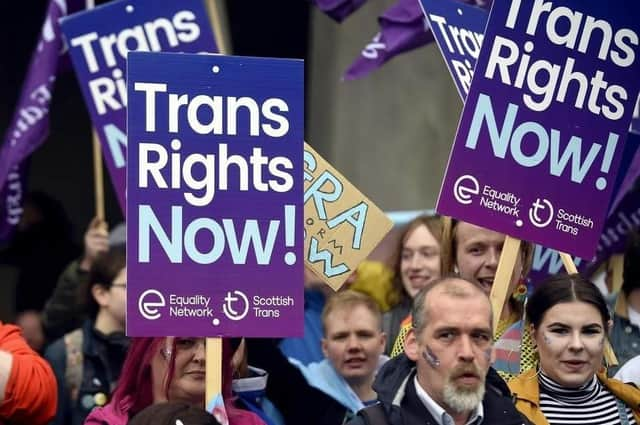Vic Valentine: We just want it to be fairer and simpler to recognise who we already are


The Bill was introduced in March, and its purpose is to reform the Gender Recognition Act 2004. This is the law that allows trans people to update the sex recorded on our birth certificate – to change the ‘F’ to an ‘M’ or vice versa. At the moment, trans men and women have to go through a long, difficult and stressful process to do this, which means that some people are unable to, and many choose not to.
To amend the sex on your birth certificate, you have to apply to a tribunal of doctors and judges who never meet you, for a Gender Recognition Certificate (GRC). You must submit a psychiatric diagnosis of ‘gender dysphoria’, intrusive medical evidence about personal choices you have made about your body, and two years of evidence that you have been living as a man or a woman. This normally includes things like your passport and driving licence, which you can update before your birth certificate, and showing that you’ve changed your name and are using it everywhere – e.g. at work and with your GP.
Advertisement
Hide AdAdvertisement
Hide AdWhat is clear, then, is that getting a GRC is designed to recognise how a trans person is already living in society – it’s in the name really – it recognises who you are, and makes sure that your documents reflect this. It means that in the rare but important times that a birth certificate is needed, you’re able to share something that shows who you are now, rather than who you were expected to be.
However, what a GRC does not do is give people permission to live their lives as who they know they are. Trans people can come out to family, friends and workplaces, and use services that are right for us, long before amending the sex on our birth certificates. Whilst the proposed reforms will make the process for doing that amendment much fairer and simpler, it won’t change anything about the other steps trans people take to live our lives – those are totally separate.
And whilst getting a GRC is important, it is not true to say that it is like a switch that is flicked in terms of how you are treated by the law. Imagine if a trans woman went for a job interview. She’s in her late twenties, and the person interviewing her doesn’t realise she’s trans. He chooses not to hire her, as he’s assumed she’s likely to get pregnant in the next few years, and doesn’t want to have to pay her salary while she’s on maternity leave. That trans woman is protected by sex discrimination laws, like any other woman. That is true whether or not she has a GRC. That is right – sexist discrimination is wrong, and the fact that the victim is trans does not stop it being wrong.
The Bill is at Stage One – with several steps and votes left before it could become law. I know that I, trans people across Scotland, and our friends and families, will be hoping that when the time comes to decide, our Parliament wants to make it fairer and simpler for who we know we are – who we already are - to be recognised.